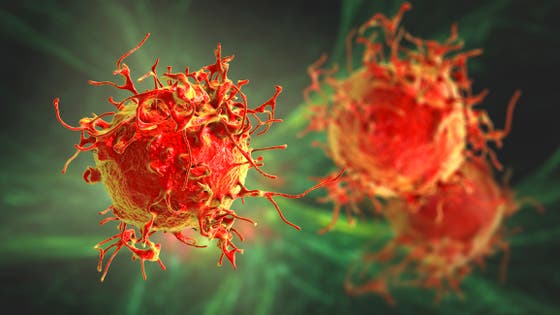Jun 6: Lymphocyte dynamics in a more natural mouse model

Lymphocyte dynamics research by Elena de Dios Panal (UMC Utrecht) shows that animal models provided valuable information that could hardly or not at all be obtained from humans. However, the discrepancies between human and murine immune dynamics found in parts of this thesis highlight some fundamental differences between murine and human immune cell maintenance. While animal models still hold potential, their critical discussion remains crucial.
It has been suggested that replacement rates of immune cells are influenced by the microbial status of the selected mouse model. Using in vivo research as well as mathematical modeling, PhD candidate Elena de Dios Panal (Center for Translational Immunology, UMC Utrecht) and colleagues found that neither the replacement rates of natural killer cells, nor those of naive T cells are influenced by the microbial status. On the other hand, memory T cells showed increased replacement rates in mice with a more natural microbiome (wildling mice). Naive T cell maintenance in wildling and standard laboratory mice are comparable but show significant differences to human naive T cell maintenance.
Effect of microbial exposure

Elena and co-workers were also interested in the dynamics of memory T cells residing in tissues. Microbial exposure leads to a more natural immune phenotype in mice, resembling the human situation, with more abundant memory T cells in tissue. Tissues of standard laboratory mice contain few memory T cells. In wildling mice, they found consistently shorter lifespans of circulating CD69- memory T cells when compared to CD69+ tissue resident memory T cells. They wondered whether the same observation could be made in humans and studied memory T cells from skin, adipose tissue and bone marrow. The difference between CD69- and CD69+ memory T cells was generally less pronounced in humans. However, in both humans and mice, bone-marrow derived CD69+ memory T cells had the slowest replacement rates of all memory T cells that were studied.
T cell dynamics in disease
Focusing on T cell dynamics in disease, Elena de Dios Panal studied how CCR5 inhibition influences T cell dynamics in the context of HIV-1 infection. CCR5 inhibition by the retroviral drug maraviroc was studied in people with suboptimal immune reconstitution despite viral suppression (immunological non-responders, INRs). She compared T cell replacement rates of INR to those in HIV-infected people with successful immune reconstitution (immunological responders, IRs), and found faster T cell replacement rates in INRs. INRs receiving a maraviroc add-on therapy, had T cell replacement rates similar to those of IRs. Surprisingly, maraviroc did not influence T cell replacement rates in mice, suggesting that the effect of maraviroc on T cell replacement rates in INRs is not merely due to blocking CCR5 signalling on T cells.
Elena de Dios Panal said: “My thesis provides several examples where animal models provided valuable information that could hardly or not at all be obtained from humans. The discrepancies between human and murine immune dynamics found in parts of this thesis highlight, however, some fundamental differences between murine and human immune cell maintenance. While animal models still hold potential, their critical discussion is therefore crucial.”
PhD defense

Elena de Dios Panal (1991, Oberhausen, Germany) defended her PhD thesis on June 3, 2024 at Utrecht University. The title of her thesis was “Back to nature - Lymphocyte dynamics in a more natural mouse model”. Supervisor was prof. José Boghans PhD and co-supervisor was Kiki Tesselaar PhD (both Center for Translational Immunology, UMC Utrecht).
